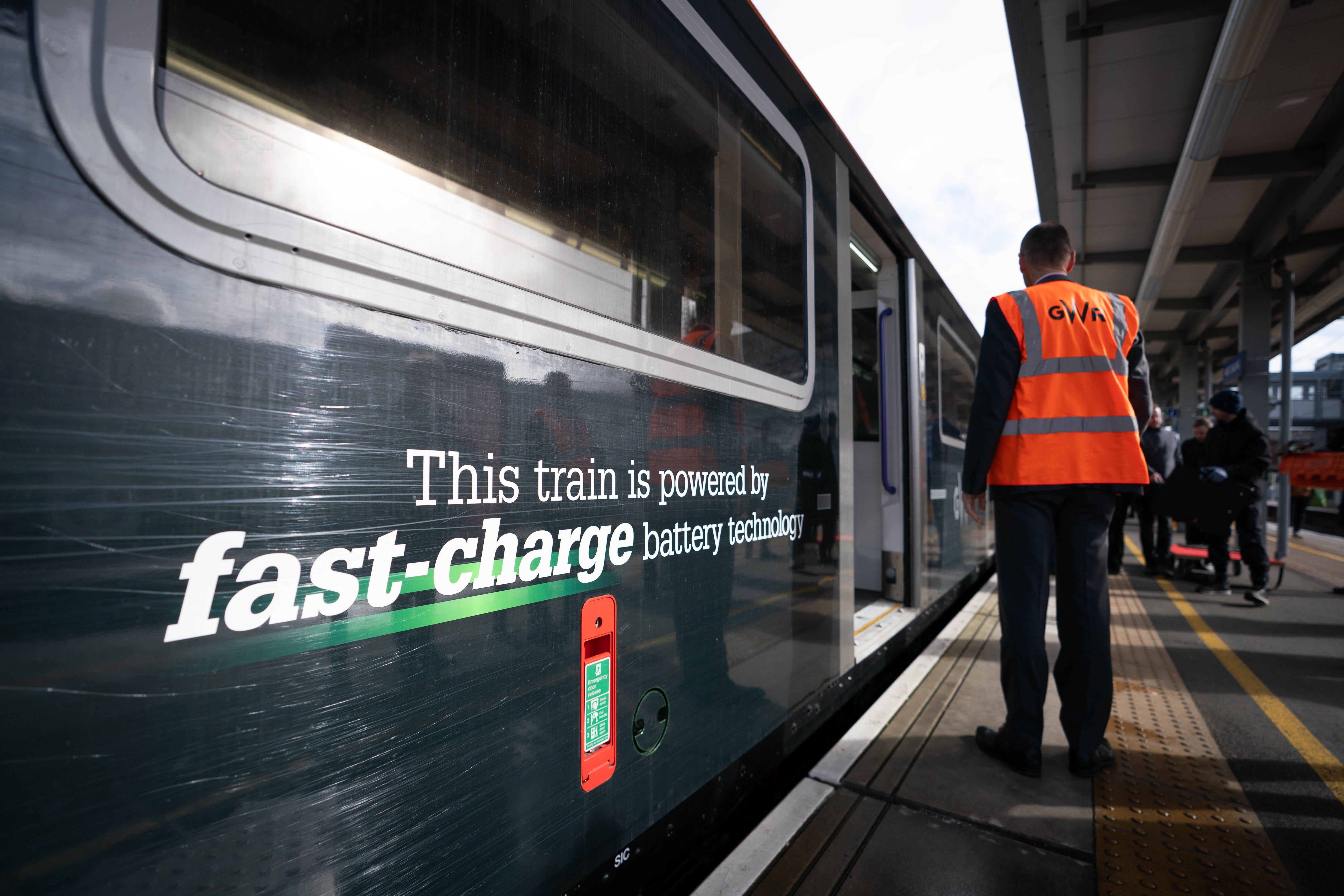Rapid-charging battery train trial launched
Great Western Railway is conducting a 12-month pilot of the technology on the two-and-a-half-mile Greenford branch line in west London.

A rapid-charging battery train trial, which could help end diesel operations on branch lines, has been launched.
Great Western Railway (GWR) is conducting a 12-month pilot of the technology on the two-and-a-half-mile Greenford branch line in west London.
The system involves batteries fitted to a former London Underground District line train being topped up during four-minute turnarounds at West Ealing station.
This is quick enough for the train to run to the usual timetable and is expected to provide enough power to ensure the batteries have more than a third of their power left at the end of service each day before they are recharged in a depot overnight.
In track testing, the train has achieved a range of 86 miles, which is the longest distance travelled by a battery train on a single charge in the UK.
GWR managing director Mark Hopwood said the technology will be a “vital” part of the industry’s efforts to phase out diesel-only trains by 2040.
He told the PA news agency: “In an environment where people are buying electric cars and electric buses are coming out, if we’re still running branch lines with diesel trains that are pumping fumes into the air that’s not going to add to our credibility around rail being environmentally-friendly.”
The train’s batteries are recharged by a trackside battery bank that is trickle charged from the National Grid, meaning there are no spikes in demand on the grid and large electrical infrastructure is not required.
The system is designed to be much cheaper and simpler than installing electric overhead wires or third rails.
Mr Hopwood said: “There’s a reluctance in Government to invest in particular routes that don’t have an overwhelming business case.
“I would like to see more electrification happening, but I think it’s being made clear that we’re not likely to see Government funds available to electrify the whole network.
“I think it’s right and proper that we look at emerging technology.”
Rail minister Huw Merriman said: “This trial proves the potential for battery technology to accelerate decarbonisation of our railways and deliver real environmental benefits through removal of harmful diesel emissions at pace.
“This is a vital step towards our ambition to remove all diesel and new trains from the UK rail network by 2014.
“I believe this trial will provide invaluable data to help us understand where battery technology can be used on other parts of the railway network, such as those places where electrification is difficult due to structural or environmental restrictions, or doesn’t provide the best value for money.”
GWR is operating its usual service on the Greenford line alongside the trial, but it hopes fare-paying passengers will be able to travel on the battery-powered train during the programme.
The pilot will last for 12 months to enable the train to be used in environmental conditions that will put different demands on the batteries, such as in winter when heaters will be used and in summer when air conditioning will be turned on.
Bookmark popover
Removed from bookmarks